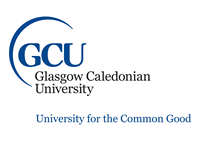About the Project
A GCU Common Good PhD Scholarship
Key words: music technology, music psychology, games, arm rehabilitation, stroke
Project Reference Number: S2017SEBE002
Applications are invited for a full-time PhD research studentship at Glasgow Caledonian University within the School of Engineering and Built Environment.
Background
Recent years have seen an increase in research into the use of commercial video games to improve arm function after stroke. This approach has considerable potential to improve arm function faster and in a more cost-effective manner than through usual care by: increasing engagement with exercise at-home; providing a low-cost adjunct to one to one sessions with a trained therapist; utilising inexpensive off the shelf game technology rather than specialist medical equipment. However, most commercial games have not been designed for people with complex disabilities and would require considerable adaptation for use in the home.
This project will focus on the development of games for arm rehabilitation after stroke, meeting the challenge of developing games that engage stroke survivors with a range of impairments (including arm motor, visual and cognitive impairments), have therapeutic potential, and can be used by individuals in a home setting.
Specifically the project will investigate the potential of music games. There is now a significant body of music psychology research demonstrating the benefits of preferred music listening upon a range of factors related to health and wellbeing. In addition, related research has demonstrated the benefits of rhythmic auditory stimulation integrated with repetitive task practice on arm function in stroke survivors - i.e. the synchronisation of movement with an audible rhythm.
This project will therefore explore the use of inexpensive off the shelf game technology for people with a range of impairments that may affect arm function, and games which incorporate rhythmic auditory stimulation and repetitive task practice embedded in individuals’ preferred music.
A key research aim is therefore to co-create novel, music-based games to improve arm function after stroke, integrating repetitive task practice with rhythmic auditory stimulation. This will require: 1) a systematic investigation of off-the-shelf technology currently available; 2) stakeholder consultation involving stroke survivors and their carers, health care professionals and designers to identify candidate technology; 3) mapping stakeholder requirements onto existing technology and developing this further to achieve the aim of this project.
Research Supervisors
Candidates are encouraged to contact the following researchers for further details:
Dr Don Knox
[Email Address Removed]
http://www.gcu.ac.uk/ebe/staff/don%20knox/
https://www.researchgate.net/profile/Don_Knox
Mode(s) of Study
The studentship is available as a:
• PhD: 3 years full-time
Eligibility
Applicants will normally hold a UK honours degree 2:1 (or equivalent); or a Masters degree in a subject relevant to the research project. Equivalent professional qualifications and any appropriate research experience may be considered. A minimum English language level of IELTS score of 6.5 (or equivalent) with no element below 6.0 is required. Some research disciplines may require higher levels.
Specific requirements of the project:
The successful candidate should primarily have demonstrable expertise in computer programming and an interest in games, gaming technology and music. They should ideally also have an interest in the development of technology for health and wellbeing.
How to Apply
Candidates are encouraged to contact the research supervisor(s) for the project before applying. Applicants should download and complete the GCU Research Application Form, available from: http://www.gcu.ac.uk/phdopportunities stating the Project Title and Reference Number (listed above).
The completed GCU Research Application form should be sent with copies of academic qualifications (including IELTS if required), 2 references and any other relevant documentation to: [Email Address Removed]. Applicants shortlisted for a PhD studentship will be contacted for an interview.
Funding Notes
The studentship of £19,100 per year is for a period of three years, subject to satisfactory progress. The studentship covers the payment of tuition fees (currently £4,300 for UK/EU students or £15,000 for international students) plus an annual stipend of £14,800 for UK/EU students or an annual scholarship of £4,100 for international students.
References
Selected References
• van Wijck, F., Knox, D., Dodds, C., Cassidy, G., Alexander, G., & MacDonald, R. (2012). Making music after stroke: using musical activities to enhance arm function. Annals of the New York Academy of Sciences, 1252(1), 305-311.
• Knox, D., Beveridge, S., Mitchell, L. A., & MacDonald, R. A. (2011). Acoustic analysis and mood classification of pain-relieving music. The Journal of the Acoustical Society of America, 130(3), 1673-1682.
• O’Neil, O., Gatzidis, C., & Swain, I. (2014). A state of the art survey in the use of video games for upper limb stroke rehabilitation. In Virtual, Augmented Reality and Serious Games for Healthcare 1 (pp. 345-370). Springer Berlin Heidelberg.
• Ali, M. et al. 2016. Development of the Standardised Measurement in Arm Rehabilitation Trials (SMART) Toolbox. https://www.researchgate.net/project/Development-of-the-Standardised-Measurement-in-Arm-Rehabilitation-Trials-SMART-Toolbox
• Rego, P., Moreira, P. M., & Reis, L. P. (2010, June). Serious games for rehabilitation: A survey and a classification towards a taxonomy. In Information Systems and Technologies (CISTI), 2010 5th Iberian Conference on (pp. 1-6). IEEE.
• Joo, L. Y., Yin, T. S., Xu, D., Thia, E., Chia, P. F., Kuah, C. W. K., & He, K. K. (2010). A feasibility study using interactive commercial off-the-shelf computer gaming in upper limb rehabilitation in patients after stroke. Journal of rehabilitation medicine, 42(5), 437-441.

 Continue with Facebook
Continue with Facebook

